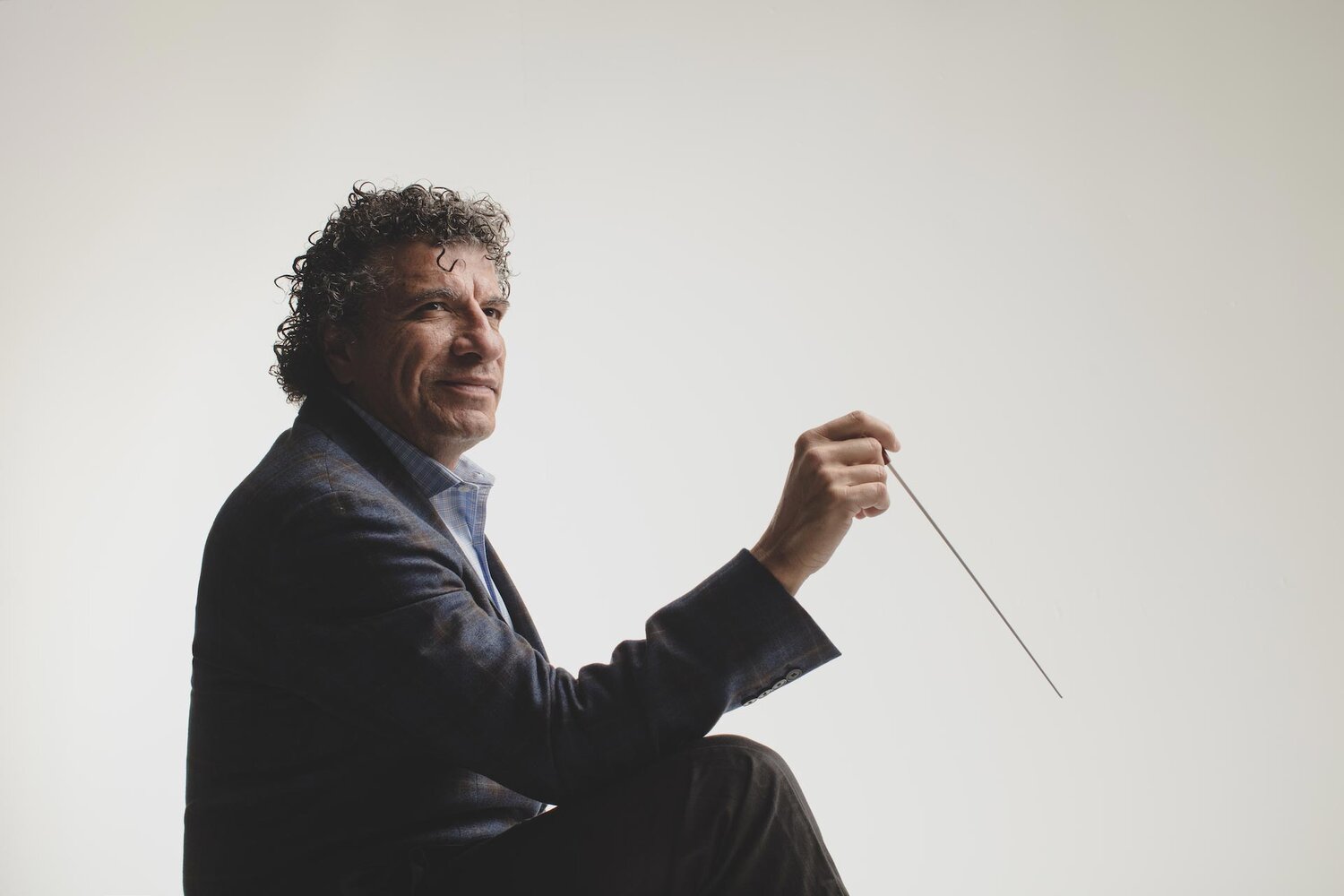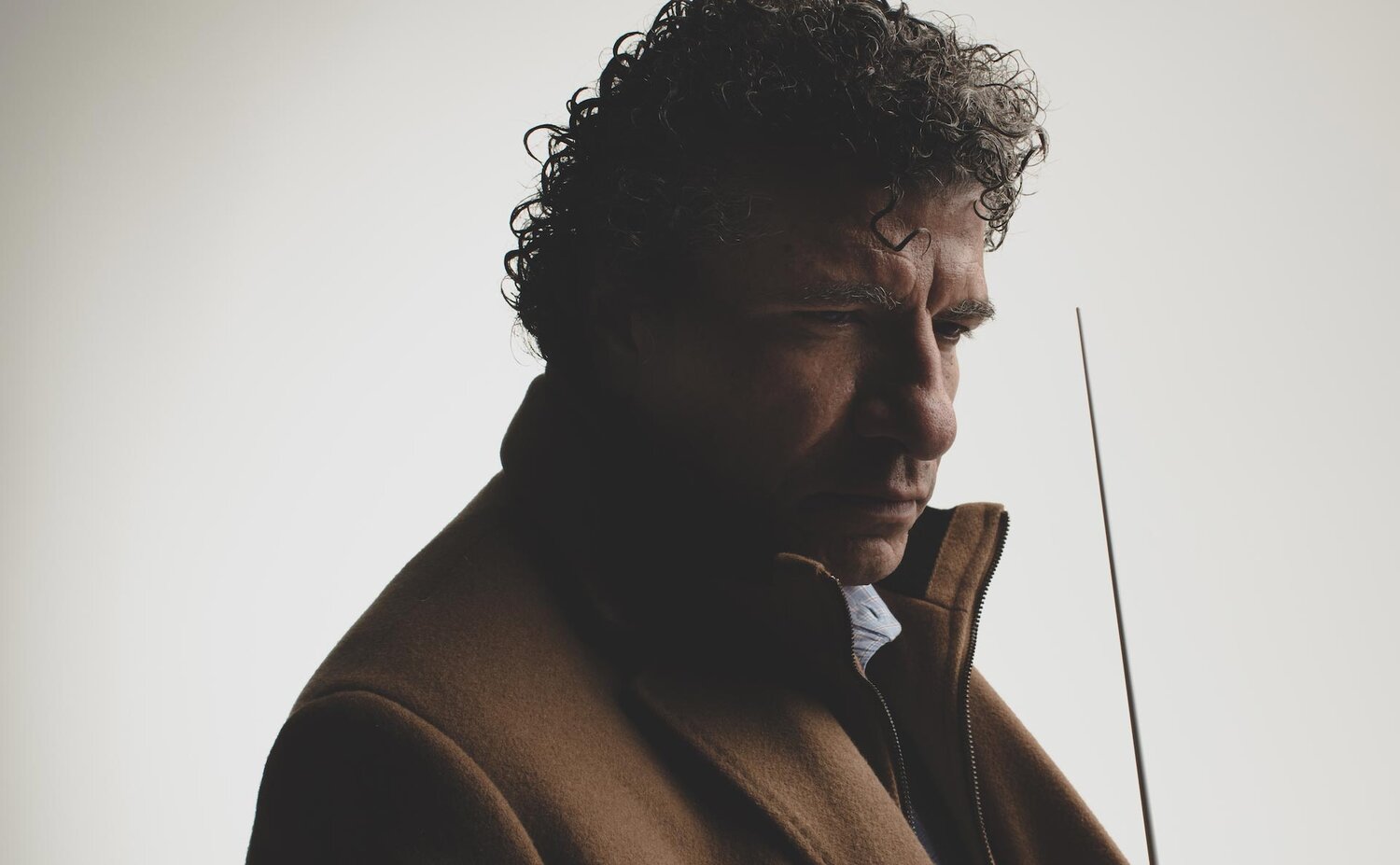The MCR Interview
Interview with Giancarlo Guerrero
Daniel Krenz: Good afternoon, it’s a pleasure to speak with you today! I’m really looking forward to this concert. It seems to be a perfect picture of what the Nashville Symphony is all about: there’s American music, new music, we’ve got Grammy connections, and live recordings. I’ve heard you talk about how programming a concert is something that you take very seriously and deeply enjoy. How did the program for this concert come about?
Giancarlo Guerrero: Well, the fact that we’re having our good friend Paul Jacobs coming and championing our wonderful organ in the Schermerhorn, which is one of the most amazing instruments; I know it’s one of the favorites for audiences, when we get to showcase and continue our project of recording great American organ concertos. Which I think has been long overdue and who else but the Nashville Symphony to do this. By having these two new works on the program, I felt that it was a wonderful thing to pair them with one particular work, which is pretty much my absolute favorite from the very beginning, and perhaps the first great American tone poem, which is An American in Paris. And I’ve always been of the belief that whenever you put these new pieces with one of what I call the “Warhorses,” the Warhorse has the new possibility of sounding fresh again, because you’re hearing it through the prism of all these new works. So, I felt that this was a wonderful opportunity to play this piece. You know, sometimes An American in Paris doesn’t get its due; sometimes it’s moved to pops concerts or to concerts that are not the main subscription series, and to me it’s perhaps the first great American tone poem from the 1920’s that kind of opened the door for all the great music that came afterwards with Bernstein and Copland and Barber and everybody else. But it was George Gershwin —ironically a Broadway composer— who basically set the standard for American classical music.
DK: When you are performing a piece that the audience is familiar with and you have performed multiple times like An American in Paris – is there anything that you do in your preparation to keep it fresh, or to change it, or to try something different from last time you performed it?

GG: I always get a new score whenever I perform a piece that I have done before. I always buy a new score and, if possible, buy a different edition, so even just the score itself looks different, and from that perspective, I try to approach it as if I’ve never heard the piece. Which is basically impossible. I mean, a piece like this, that not only have I conducted it, but I’ve heard it live, I have many recordings of it, you turn on the TV and excerpts from it are being played. It comes with baggage, but the fact that I try to continue to disconnect myself from the past and look at it, even in just a different score where even the font is different, makes me look at things very very differently. I start discovering things that I may have perhaps overlooked before or things that maybe I put an emphasis on before but now I put an emphasis on other things. It may be rhythm, it may be colors, it may be particular instrumentation. So it’s always a discovery and I think that is one of the most important things about what we do, because we are so steeped in tradition. But even with tradition you have to have flexibility. And that applies not only to George Gershwin’s An American in Paris; it applies to Johann Sebastian Bach, it applies to Mozart and Beethoven and everybody else. Because the world is changing, why shouldn’t performances and attitudes towards it? I feel that it many ways it’s a rediscovery of a piece under different circumstances. And remember, post-COVID, it’s almost like starting with a blank slate in many ways. And every time we get to play it’s a reminder of what we almost lost. Once again, we’re here celebrating this music which is eternal. And for me, what better place to do it than in a program that showcases two brand-new American works specially written for the organ.
DK: I’m particularly excited for this one because I’ve heard some pretty stiff performances of Gershwin in general, but you and the Nashville musicians always seems to nail the style.
GG: Well the big reason for that is that we take it as seriously as we take a Beethoven symphony or a Brahms symphony. As I said, this is one of the great American tone poems and perhaps the first one. It opened the door for many others and because of that I think it’s an absolute masterpiece that deserves to be in every great program of every major orchestra, not only in the United States but all over the world.
DK: Pulse, the first piece on the program, was first premiered with the Composer Lab Program back in 2019. Can you talk a little bit about the Composer Lab Program and what it’s like to workshop a piece live with the composer right there with you?
GG: Like you said, this program kind of encompasses everything the Nashville Symphony is all about. Over my tenure here we have been championing all the great living American composers, all of them very well established, Pulitzer Prize winners and Grammy winners and what have you. The next natural thing was discovering the next generation of great American composers. The Composer Lab was basically designed to do that. We bring these young composers —who are just maybe out of school, just getting started, and who perhaps need that extra push— and the Nashville Symphony and myself as a conductor are more than happy to give them a voice, bring them to Nashville, and put them under this lamp, basically, five of six of them at a time every two years, where we perform their music. And at the same time, they get to meet with our players and talk with professionals in the business, and understand what it is like to be a professional composer in the 21st century: How do you promote your music? How do you publish your music? So it’s not just playing their music, it’s a whole thing together that eventually, as they progress —and many of them have gone on to great careers— they will always look back on the Nashville Symphony —and the Nashville audiences, by the way— that gave them the opportunity to have their music performed. The last one that we did before COVID produced, in my opinion, five incredible, great works by very mature composers at very young ages. One of them was this composer, Brian Nabors. The whole orchestra was completely fascinated by this piece. I immediately decided that it deserved to be on one of the subscription programs. And of course, we had it programmed in 2020 and I don’t have to tell you what happened then! So here we are. It’s a postponement and finally, we got a chance to put it in here. So it’s a wonderful combination of having all American composers, one of them a Nashville Symphony discovery in the case of Brian Nabors, then Christopher Rouse, a great friend who unfortunately passed away not long ago. Wayne Oquin, who’s a new addition to our long list of great composers, and of course, the immortal George Gershwin.

DK: Your relationship with Paul Jacobs has been very fruitful with a handful of Grammys, and I know you’ve collaborated on a number of occasions. How did you and Paul first meet?
GG: Well it was one of those arranged marriages, we first worked together in the Cleveland Orchestra. He was the assigned soloist and I was the assigned guest conductor and we immediately hit it off. I mean, let’s face it, Paul Jacobs right now is perhaps the most important American organist on the scene, by far. Not only is he an amazing performer, but he has inspired all of these great composers, for the last ten, fifteen years, to write organ concertos specifically for him. The best comparison I have is to go back a hundred years ago, when Mstislav Rostropovich became the great cellist of the 20th century, and pretty much every great cello concerto of the 20th century was https://www.musiccityreview.com/wp-admin/options-general.phpwritten for him. So in this case it is Paul Jacobs doing the same thing for the organ. And remember, this instrument is usually very conservative, usually related to churches and sacred music. The fact that nowadays he’s championing all this of music that has been written specifically for him and can be performed in concert halls is an absolute miracle. And seeing we have this amazing instrument —which, by the way, is not available to many orchestras; if you go to New York, neither Carnegie Hall or the New David Geffen Hall have an organ— so they’re not able to do this, but here in Nashville we have this ability to perform and champion this music. This is part of a long project that Paul and I have been talking about, of not only releasing this, but continuing to commission more composers, as they come along, to continue expanding the repertoire for organ, just the same way that Rostropovich did for the cello a hundred years ago. And he’s the right person for it. In fact he’s such an amazing virtuoso that there are no limits to what this guy can do. For me it has been one of the best projects that I’ve been involved in. In my time in Nashville, with all this championing of new concertos that Paul Jacobs has brought in. By the way, this will wrap up the CD that we started before COVID when we recorded the Horatio Parker concerto, which is a late 19th century piece. Horatio Parker was Charles Ives’ teacher at Yale, interestingly enough. So yeah, it’s not only looking at the new pieces but at the same time bringing back some of this amazing American organ music that was written a long long time ago, that in many ways has been neglected.
DK: I’m really looking forward to it. I think it’s a fantastically programmed concert. Thank you for taking the time to talk about it.
GG: I’m sure you’re going to love this concert and I’m very much looking forward to it.



